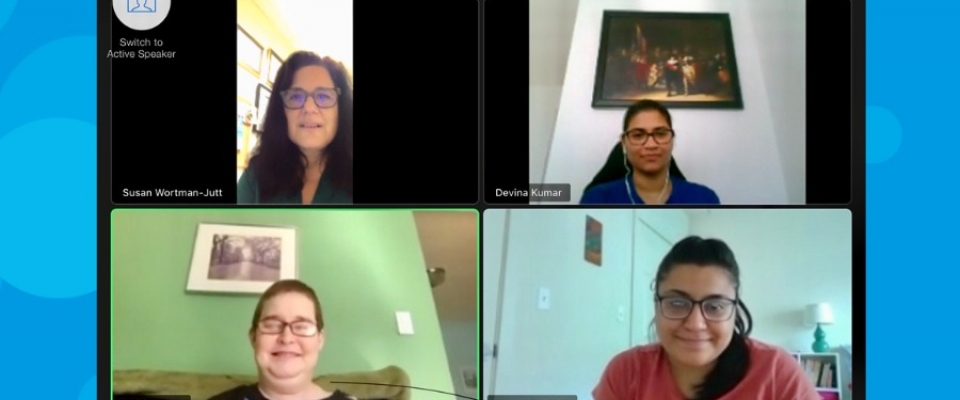You are here

Aphasia Journal Club—Reviewing and Discussing the Latest Research on Language in the Brain
Approximately 30% of individuals who have had a stroke live with aphasia—a speech and language disorder that affects one’s ability to express themselves verbally. Aphasia may also affect language comprehension, reading and writing skills, meaningful for daily life. Many people living with aphasia also live with motor speech disorders that impacts muscle tones vital for speak.
Led by Susan Wortman-Jutt, M.S., CCC-SLP, the Aphasia Journal Club meets online every Friday. It's a great opportunity to discuss not only language and aphasia but also clinical research. At our last meeting, we discussed an article by Breitenstein et al. (2017), called "Intensive speech and language therapy in patients with chronic aphasia after stroke: a randomized, open-label, blinded-endpoint, controlled trial in a healthcare setting." What was so interesting was that the discussion expanded beyond the study, to include questions such as, "What do we mean in rehabilitation research when we say a treatment is effective?"
Other questions that arose included, "What are the advantages and disadvantages of having liberal inclusion criteria?" And, "What are the ethics surrounding clinical trials wherein patients' insurance is paying for the treatment that is being studied?" Many interesting ideas were shared in relation to these and other questions, so having a background in Speech and Language is not necessary to join in. During these meetings the club discusses not only language and aphasia but also the latest publications of cutting-edge, clinical research. On any given Friday, we might have anywhere from 3 to 7 participants, so more members of the Institute are always welcome.

